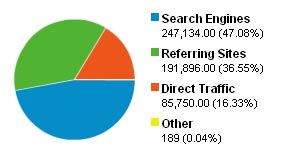When I happened upon the CBC’s “Reuse and Permissions” page, I clicked the link because I was curious how the nation’s publicly funded broadcasting company would feel if I tried to reuse the content that I helped pay for.
From the FAQ:
Q. I am a university student and have come across a video clip on your website that I am hoping to use in a presentation. Is it possible for me to use it?
A. Unfortunately, we can’t give permission for this type of use without charging a sizeable licensing fee. However, you are welcome to create a link to the cbc.ca page in your presentation, so your fellow students may view the CBC content.
They can’t give permission without a sizable licensing fee?! It seems they’re not actually interested in licensing their content either or perhaps they’d have some information regarding just how “sizable” a fee they mean. For some students, using a “link” to the CBC’s website is not possible if the presentation is going to be done at a school where the Internet is not available. Now, having said that, using the web browser to view their content IS making a copy! That’s how the Internet works, everything is a copy! So they’re giving permission to make a copy while at the same time trying to imply a restriction on ones right to change the format in which the copy exists (ie. only playing the content from their website).
Now for an organisation so reliant on tax payers’ funding, the CBC’s policy is in itself ridiculous, but if we take it a step further and consider what the Canadian Copyright Act states about students copying work for educational purposes, we find some rather revealing details (though I’m not a lawyer, this seems pretty simple to me).
In the 2004 landmark ruling by the Supreme Court of Canada in CCH Canadian Ltd. v. Law Society of Upper Canada the concept of fair dealing in Canada was clarified, in part, when the Court made the following general observation:
[I]t is important to clarify some general considerations about exceptions to copyright infringement. Procedurally, a defendant is required to prove that his or her dealing with a work has been fair; however, the fair dealing exception is perhaps more properly understood as an integral part of the Copyright Act than simply a defence. Any act falling within the fair dealing exception will not be an infringement of copyright. The fair dealing exception, like other exceptions in the Copyright Act, is a user’s right. In order to maintain the proper balance between the rights of a copyright owner and users’ interests, it must not be interpreted restrictively.
This brings up the question of what exactly is Fair Dealing? Well, again from the landmark Supreme Court of Canada case that establishes the bounds of fair dealing in Canadian copyright law CCH Canadian Ltd. v. Law Society of Upper Canada:
It is impossible to define what is “fair dealing”. It must be a question of degree. You must consider first the number and extent of the quotations and extracts. Are they altogether too many and too long to be fair? Then you must consider the use made of them. If they are used as a basis for comment, criticism or review, that may be a fair dealing. If they are used to convey the same information as the author, for a rival purpose, that may be unfair. Next, you must consider the proportions. To take long extracts and attach short comments may be unfair. But, short extracts and long comments may be fair. Other considerations may come to mind also. But, after all is said and done, it must be a matter of impression. As with fair comment in the law of libel, so with fair dealing in the law of copyright.
In Canada, the six Fair Dealing exceptions are:
- The Purpose of the Dealing
- The Character of the Dealing
- The Amount of the Dealing
- Alternatives to the Dealing
- The Nature of the Work
- Effect of the Dealing on the Work
Though not all of these considerations will arise in every question of Fair Dealing, this list provides a useful analytical framework with which govern decisions of fairness.
Specifically, section 29.6 of the Canadian Copyright Act says:
“it is not an infringement of copyright for an educational institution or a person acting under its authority to
(a) make, at the time of its communication to the public by telecommunication, a single copy of a news program or a news commentary program, excluding documentaries, for the purposes of performing the copy for the students of the educational institution for educational or training purposes;
So, if you’re a student wanting to show a video clip of a news program or news commentary program, you don’t need the CBC’s permission to make a copy and you’re allowed to keep and show that copy for up to one year without paying royalties.
I think it’s disgraceful that CBC is so protective over their publicly funded content, however, the law does allow for the presentation of certain material for educational purposes in educational contexts. It’s too bad the CBC doesn’t realize this.



